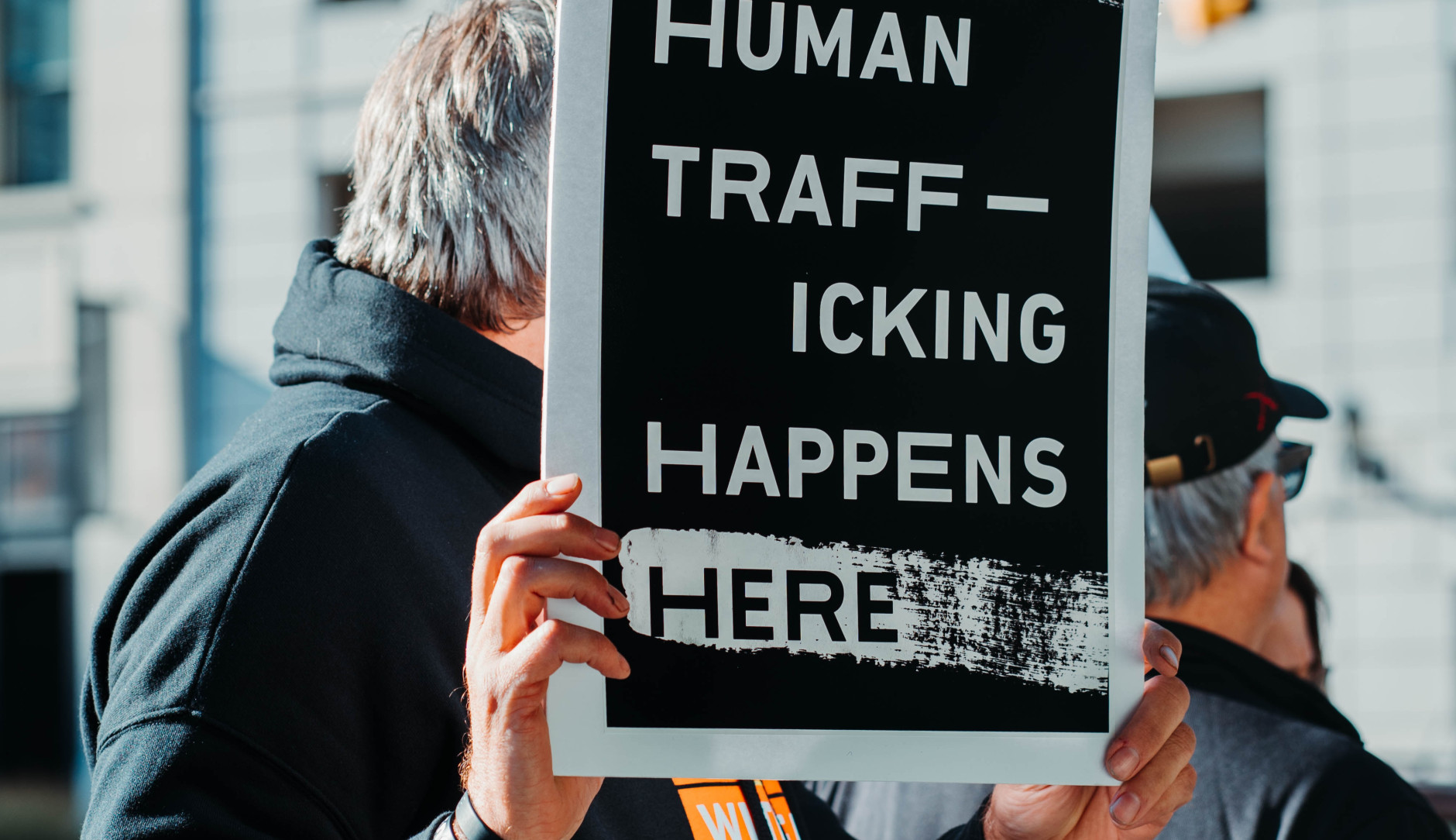Join the Fight: Defend Human Rights, Combat Human Trafficking!
Criminal justice approaches have failed – we need to centre our strategies on the victims

‘Trafficking in human beings is a crime that should have no place in today’s society.’ So begins the European Commission’s Strategy on Combatting Trafficking in Human Beings (2021-2025). And yet human trafficking remains a prevalent and highly lucrative activity that devastates the lives of its victims.
The scale of modern slavery (of which human trafficking is a key part) is staggering. Globally, there are an estimated 50 million people trapped in slavery. Of those, a quarter are children. The main forms of slavery are forced labour and sexual exploitation.
In the European Union, there may be as many as 1.3 million people living in modern slavery, yet there are currently a meagre 7,000 registered victims of trafficking. Of those identified as victims of trafficking in the EU, almost half are citizens of the country in which they were identified. This is especially the case in Eastern Europe.
Human trafficking is characterised by three elements: the movement or recruitment of people (though not necessarily across borders), via a means of deception or coercion, for the purposes of exploitation. This exploitation is highly profitable, generating an estimated 30 billion Euros a year for traffickers and organised crime groups.
The theme of this year’s UN ‘World Day against Trafficking in Persons’ is ‘Leave No One Behind’. But given the shocking number of individuals who remain trapped in forced labour, and with fewer victims of trafficking being identified than in previous years, it would seem that current strategies are, indeed, leaving millions behind.
Current approaches to tackling human trafficking are ineffective
Volt takes the view that the current EU approach to trafficking – one that frames trafficking as an issue of criminal justice – has failed to protect the victims and has not resulted in a significant downturn in trafficking activities.
Traditionally, trafficking has been regarded as a crime carried out by criminals who need to be detained and prosecuted. In taking this approach, however, the focus falls more on the conviction of perpetrators and less on prevention of further trafficking or the rehabilitation of victims.
While there is merit to the criminal justice approach (trafficking is strongly linked with broader issues such as organised crime, financial crime and drug trafficking), it is often the case that the interests of the victims of trafficking are subordinated in pursuit of legal goals. When victims are identified, they can be viewed primarily as a tool to aid prosecution, in some cases compelled to testify against their trafficker. This may result in a form of ‘secondary trafficking’ that can re-traumatise victims, rather than enabling them to move on from their abuse.
Viewing trafficking through a human rights lens
Volt believes that the interests of the victims of trafficking should be at the heart of any strategy to combat human trafficking.
A human rights approach can be achieved by ensuring that:
trafficked people are not prosecuted for unlawful activities that took place as a consequence of their trafficking.
healthcare and protection for identified victims is not made contingent on a victim’s willingness to cooperate in legal proceedings.
temporary residence permits are made available to victims identified in third countries. (This is currently the case in several Member States, including the Netherlands and Serbia, however Volt MEP Damian Boeselager has called for third-country nationals identified as victims of trafficking in the EU to be granted long-term resident status.)
the vulnerabilities and needs of specific groups of victims (e.g. children, disabled people, women, migrants) are recognised and responded to accordingly.
victims are able to return to their country of origin safely, and where this is not possible, that alternatives are provided.
law enforcement personnel, legal professionals and private sector employers are trained not only to recognise potential victims, but to respond to their specific needs.
It is important to state that the human rights approach is not simply compassionate. It can be especially effective in addressing trafficking in general. By recognising victims as more than aids to prosecution, instead as individuals with specific experiences, it is possible to address the root causes of trafficking.
Trafficking is not, for example, a gender-neutral phenomenon. Women account for 71% of trafficking victims, many of whom are trafficked for the purposes of sexual exploitation. Recognising this dimension and embedding it in strategies may help to challenge the kinds of structural inequalities that make trafficking appealing to perpetrators in the first place.
An opportunity for reform
The EU is currently reviewing its 2011 Directive on human trafficking. It acknowledges that most perpetrators continue to go unpunished and that a ‘victim-centred approach’ has not been effectively implemented.
With the numbers of people trafficked rising, both globally and in the EU, and in light of the increase in exacerbating factors such as war, migration, climate change and cybercrime, the need for effective strategies against trafficking is essential. To be effective, we believe that any revision to EU legislation must put the interests of victims at the forefront.
For more information on Volt’s policy proposals on human trafficking, contact [email protected]
Article by Kate Fistric.